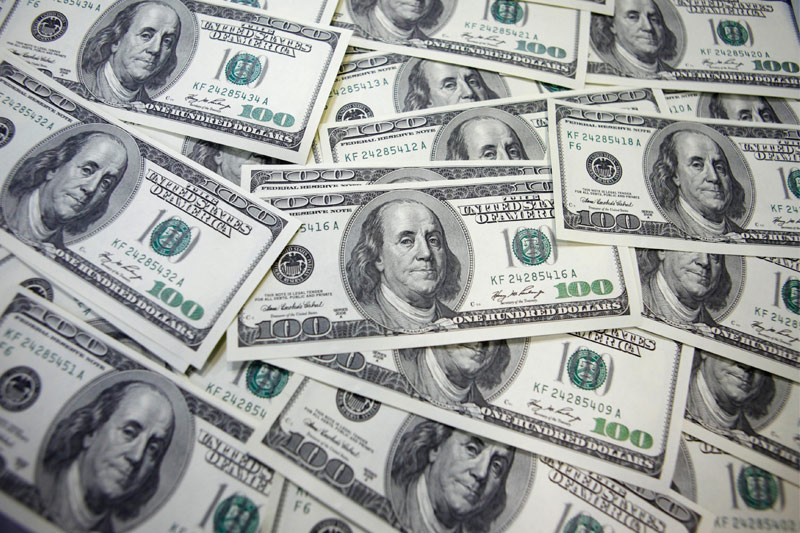Investing.com – The dollar fell against a basket of major currencies as easing investor fears about a trade war failed to resume demand in the greenback amid ongoing euro and sterling strength.
The U.S. dollar index, which measures the greenback’s strength against a trade-weighted basket of six major currencies, fell 0.48% to a more than six-week low of 88.66.
China and the U.S. “have quietly started negotiating” to improve U.S. access to Chinese markets, The Wall Street Journal reported, citing people with knowledge of the matter.
China reportedly considered the U.S.’s request seeking a reduction of Chinese tariffs on U.S. automobiles, more Chinese purchases of U.S. semiconductors and greater access to China's financial sector by American companies.
That helped ease investor demand for safe-haven yen as the USD/JPY rose 0.20% to Y104.94.
The yen has been one of the favoured safe-haven destinations amid trade war fears, however, some have questioned the rationale behind the move as Japan is yet to secure an exemption for U.S. tariffs on steel and aluminium imports.
"Buying the yen because of a trade war in which Japan was going to be hit pretty badly, and Japan hasn't been exempted from the steel tariffs by the way, that seems to me pretty peculiar," Giles Keating, managing director at wealth manager Werthstein Institute, told CNBC.
The dollar struggled to pare losses, however, as an ongoing rally in sterling and euro continued to limit upward momentum.
GBP/USD rose 0.79% to $1.4242 as traders continued to cheer a plethora of positive factors including the recently announced Brexit-transition deal, while rising UK wage growth has raised expectations the Bank of England will raise rates at its May meeting.
EUR/USD rose 0.72% to $1.2441, while USD/CAD fell 0.20% to C$1.2870 despite White House trade advisor Peter Navarro’s upbeat comments on the North American Free Trade Agreement deal negotiations.
